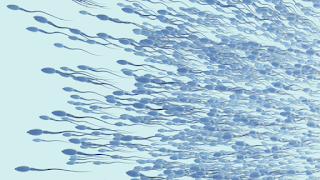ARTICLE AD BOX
-
A team of researchers found that sperm in men who settled at home during the pandemic became less active overall.
A team of researchers found that sperm in men who settled at home during the pandemic became less active overall.
The researchers came to this conclusion while investigating the widespread view that "men's sperm counts are declining worldwide."
The study included semen samples from 6,758 men, between the ages of 18 and 45, collected through the world's largest sperm bank, Cryos International in Denmark.
The team found that sperm concentration samples, taken from men coming forward to donate sperm between 2017 and 2022, “did not change significantly over a 6-year period.” But researchers discovered a significant difference in sperm motility (i.e. their ability to move spontaneously).
“It is common that sperm counts in men decrease,” said co-author, Professor Alan Pacey, from the University of Manchester, pointing to a recent study that collected data from 44 studies, conducted by Dr. Hagai Levin of the Hebrew University of Jerusalem, that found that sperm counts decreased. By up to 2.64% annually in men worldwide since 2000.
However, Pacey said, "We did not see such a change in our study, and this suggests that in that category of sperm donation applicants, sperm concentrations did not change between 2017 and 2022."
But the total number of sperm designated for motility (submitted for testing) fell by 16% and 22%, respectively, between 2019 and 2022.
Professor Robert Montgomery, co-author from Queen's University in Canada, said: “The decline in sperm motility measures between 2019 and 2022 was an unexpected finding. This decline roughly corresponds to the beginning of the worldwide Covid pandemic. Although not With evidence suggesting that the SARS-CoV-2 virus directly affects sperm, we speculate whether widespread lockdowns may have led to changes in work patterns, diet and physical activity levels, which we already know can affect animal movement. "Sperm."
The study was published in the journal Human Reproduction.
.png)
 5 months ago
5
5 months ago
5









 English (US)
English (US)